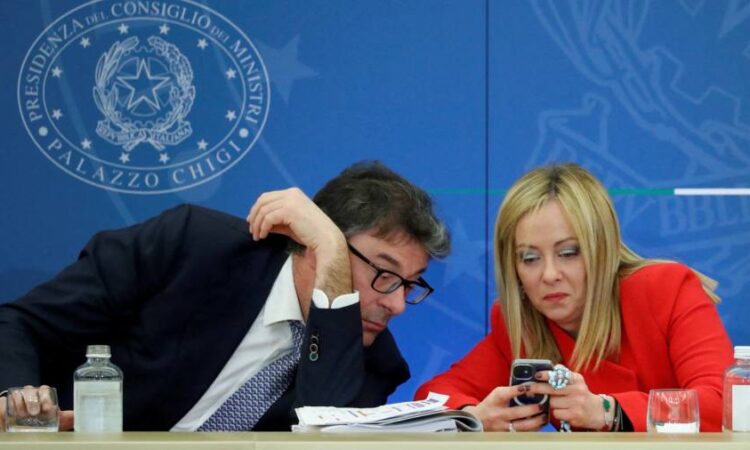
Italy, the biggest beneficiary of EU’s €800bn post-pandemic recovery fund, is pleading for extra time to spend its share as it seeks to overhaul a programme that it says has been blown off course by Russia’s invasion of Ukraine.
Giancarlo Giorgetti, minister for the economy and finance, said Italy — and Europe — had to be more realistic about how cost projections for the plan had been affected by the Ukraine conflict.
He also said the government led by Giorgia Meloni, who came to power in October, wanted to ensure the EU money was spent on investments in line with new strategic priorities that had emerged since the invasion — particularly in the energy sector.
For this, he said, Italy would need at least an extra year. Under the current arrangements, EU disbursements of recovery funds are due to end in 2026 — a cut-off date agreed as a way to placate thrifty capitals that insisted for the huge joint borrowing to be a one-off exercise.
“The idea of extending the deadline would be welcomed by us but I think also by everyone in a positive way,” Giorgetti told a group of reporters in Rome. “Unfortunately, the first year there was the conflict in Ukraine . . . which has completely altered production conditions. A one-year extension is welcome.”
His words come as EU leaders prepare to debate ways of boosting support for the green transition as they rush to respond to the huge subsidies being offered by Joe Biden’s administration via the $369bn Inflation Reduction Act. One of the options up for discussion at Thursday’s summit in Brussels is to create greater flexibility in the use of existing pools of EU funding, including the recovery fund.
However, the notion of an extension to the Covid-19 recovery fund is contentious among member states. Extending the 2026 deadline would involve reopening legislation and unanimous agreement among member states.
One of the risks of amending the regulation is that capitals start making requests for other changes, creating a legislative headache. But Giorgetti said Italy would seek a “quid pro quo” from France and Germany, as they seek to loosen subsidy rules in response to the IRA.
“If we move towards relaxing state aid rules, Italy demands more flexibility on the Covid recovery fund,” he added. “If Italy allows Germany to expand state aid, we ask for more flexibility on using existing money available to Italy.”
Italy has so far spent about €12bn of the almost €67bn it has received, though Giorgetti said the pace of spending would increase. The mix of loans and grants Rome can tap totals €200bn and is seen as a once-in-a-generation opportunity to lift the country’s long-term growth trajectory and make its heavy debt more sustainable.
The unexpected early collapse of Prime Minister Mario Draghi’s national unity government last year had raised concerns about Italy’s ability to complete the package of reforms linked to the funding. Meloni has sought to allay such concerns, describing the recovery funds as critical, though she also said the plan would need some changes to account for rising costs since the war, something the European Commission has already nodded to.
But Giorgetti indicated that Italy was seeking more fundamental changes to how funds are used.
For example, he suggested the money could be used to help with infrastructure investments in power transmission infrastructure to support Meloni’s vision of turning Italy into a European energy hub, through which gas could be brought from north Africa to Europe.
With energy and primary material costs spiralling, Giorgetti said Italy’s new government was ready to make “painful choices” to axe less important projects, such as those planned by some municipalities.
“This is not a political choice but . . . a choice that depends on objective external conditions,” he added. “This is not just an Italian problem. All the countries have the same problem . . . we more than others because we have a full allocation [of the funds.]”
He said Italy was also reassessing investment plans laid out nearly two years ago — in a radically different global context.
“If this assessment were not done, I would feel responsible for doing things that are today perhaps less urgent and less a priority than two years ago and that would be wrong.”
Additional reporting by Sam Fleming in Brussels






